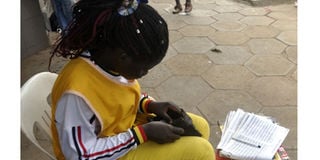Prime
Taxes on mobile money to stifle financial inclusion

Mobile money is a key vehicle that a number of institutions rely on for financial inclusion. PHOTO BY EDGAR R BATTE
What you need to know:
- Apart from mobile, government has also proposed new taxes on Saccos, another key vehicle for financial inclusion.
- Government has proposed a 1 per cent tax on all mobile money transactions, which according to some experts will make the platform unaffordable. Government is also proposing an increment of Excise Duty on mobile money from 10 per cent to 15 per cent.
- Government, through the Uganda National Financial Inclusion Strategy 2017-2022 seeks to increase financial inclusion from 20 per cent to 50 per cent. Uganda has slightly about four million accounts.
Proposed taxes on mobile money transactions are likely to negatively impact financial inclusion, according to a number of players involved in curbing financial exclusion.
Speaking during the closure of the Shs23b Uganda Rural Challenge fund, representatives from financial institutions said the taxes will make mobile money, a key financial inclusion vehicle, unaffordable.
Apart from mobile, government has also proposed new taxes on Saccos, another key vehicle for financial inclusion.
Ms Mona Muguma Ssebuliba, the aBi Trust, chief operating officer, told participants that they were concerned as the new taxes will increase the cost of mobile money, which will eventually affect smallholder farmers.
“The day they notice that transacting on mobile money is expensive they will quit, which in a way will negatively affect financial inclusion that we have been trying to achieve for years,” she said.
Government has proposed a 1 per cent tax on all mobile money transactions, which according to some experts will make the platform unaffordable. Government is also proposing an increment of Excise Duty on mobile money from 10 per cent to 15 per cent.
Patrick Serura from Uganda Cooperative Alliance, said that whereas government badly needs money, it should look at other alternatives that will not stifle financial inclusion.
Government, he said, should re-introduce graduated tax, which was banned about 15 years ago.
“Let government use the national identification system to see that every adult pays some tax. Even if it is Shs1,000 instead of squeezing a few,” he said.
According to data from Uganda Communications Commission, there are about 21 million mobile money subscribers in Uganda.
Mobile money has been used by a number of institutions that are involved in financial inclusion.
Ms Lydia Obbo, the aBi Trust chairperson, told participants that they should come up with a position paper that will detail the impact of the proposed taxes.
“As players [advocates of financial inclusion] we should come up with empirical evidence on the impact of the new taxes and show the government their impact,” she said.
The Fund
The Uganda Rural Challenge Fund was introduced in 2013 with the objective of improving access to sustainable and demand-driven financial services for the rural population and rural Micro, Small and Medium Enterprises (MSME).
“Through this fund we wanted to contribute to the deepening and broadening of the financial sector in Uganda, as well as to the development of the private sector, to improve the economic and social conditions of the target group,” Mr Lawrence Ssentongo, URCF project manager said.
The fund (Programme Component A) is a partial grant offered by the Germany government through the Frankfurt school of Management and was executed by aBi Trust.
Crafted on a cost-sharing basis, the fund saw beneficiaries receive grants ranging between $50,000 (Shs185m) and $250,000 (Shs925m) who developed several innovations that supported in including the rural poor into the financial sector.
Ssentongo said the project has benefited over 700,000 in the rural areas countrywide from the different financial products and business approaches the 19-financial institutions innovated to increase rural financing.
Some of the institutions which received the funds to develop the innovations included Post Bank, Bank of Africa, Finca Uganda, Opportunity Bank and the Hunger Project among others.
TARGET
Government, through the Uganda National Financial Inclusion Strategy 2017-2022 seeks to increase financial inclusion from 20 per cent to 50 per cent. Uganda has slightly about four million accounts.




